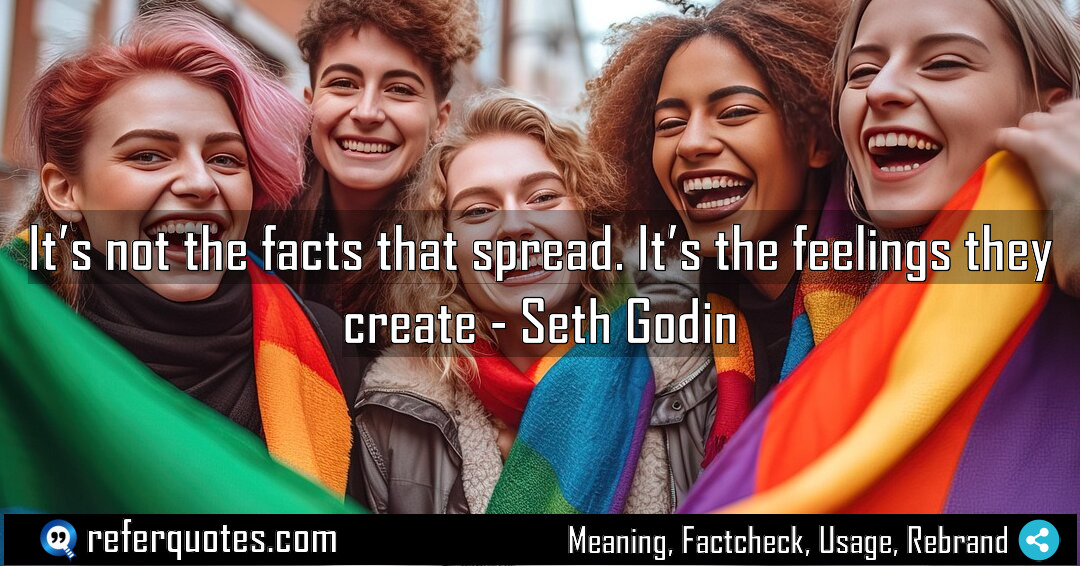It’s not the facts that spread, it’s the feelings they create. This is the secret engine behind every viral idea, every brand people love, and every movement that actually catches fire. We’re wired for emotion, not for data sheets.
Share Image Quote:Table of Contents
Meaning
Information is inert. Emotion is the propellant. The core message is that people share and remember how something made them feel far more than the raw data points themselves.
Explanation
Look, I’ve seen this play out a thousand times. You can have the most accurate, most thoroughly researched facts in the world, but if they don’t connect with someone on an emotional level—if they don’t create a sense of hope, fear, belonging, or outrage—they go nowhere. They just sit there. It’s the feeling that becomes the social currency. It’s the feeling that makes someone lean over to their friend and say, “You have to see this.” The facts are just the container for that emotional payload. They’re the vehicle, but the feeling is the fuel.
Quote Summary
| Context | Attributes |
|---|---|
| Original Language | English (3668) |
| Category | Emotion (177) |
| Topics | communication (196), emotion general (105), influence (70) |
| Literary Style | minimalist (442), poetic (635) |
| Emotion / Mood | reflective (382) |
| Overall Quote Score | 81 (258) |
Origin & Factcheck
This gem comes straight from marketing guru Seth Godin’s 2005 book, All Marketers Are Liars, which he later subtitled “…Tell Stories.” It’s a core tenet of his philosophy, and it’s often misunderstood. He’s not advocating for literal lies, but for telling authentic stories that feel true.
Attribution Summary
| Context | Attributes |
|---|---|
| Author | Seth Godin (100) |
| Source Type | Book (4032) |
| Source/Book Name | All Marketers Are Liars: The Power of Telling Authentic Stories in a Low-Trust World (57) |
| Origin Timeperiod | 21st Century (1892) |
| Original Language | English (3668) |
| Authenticity | Verified (4032) |
Author Bio
Seth Godin writes and teaches about marketing, leadership, and creative work. After earning an MBA from Stanford, he founded Yoyodyne, sold it to Yahoo!, and later launched ventures like Squidoo and the altMBA. He has authored bestsellers such as Permission Marketing, Purple Cow, Tribes, Linchpin, and This Is Marketing. He posts daily at seths.blog and speaks globally about making work that matters. If you’re starting with the Seth Godin book list, expect insights on trust, storytelling, and shipping creative projects that change culture.
| Official Website | Facebook | X
Where is this quotation located?
| Quotation | It’s not the facts that spread. It’s the feelings they create |
| Book Details | Publication Year/Date: 2005; ISBN/Unique Identifier: 9781591841009; Last edition: Portfolio Penguin 2012; Number of pages: 240. |
| Where is it? | Chapter 37: Emotional Spread, page 267, 2012 edition |
